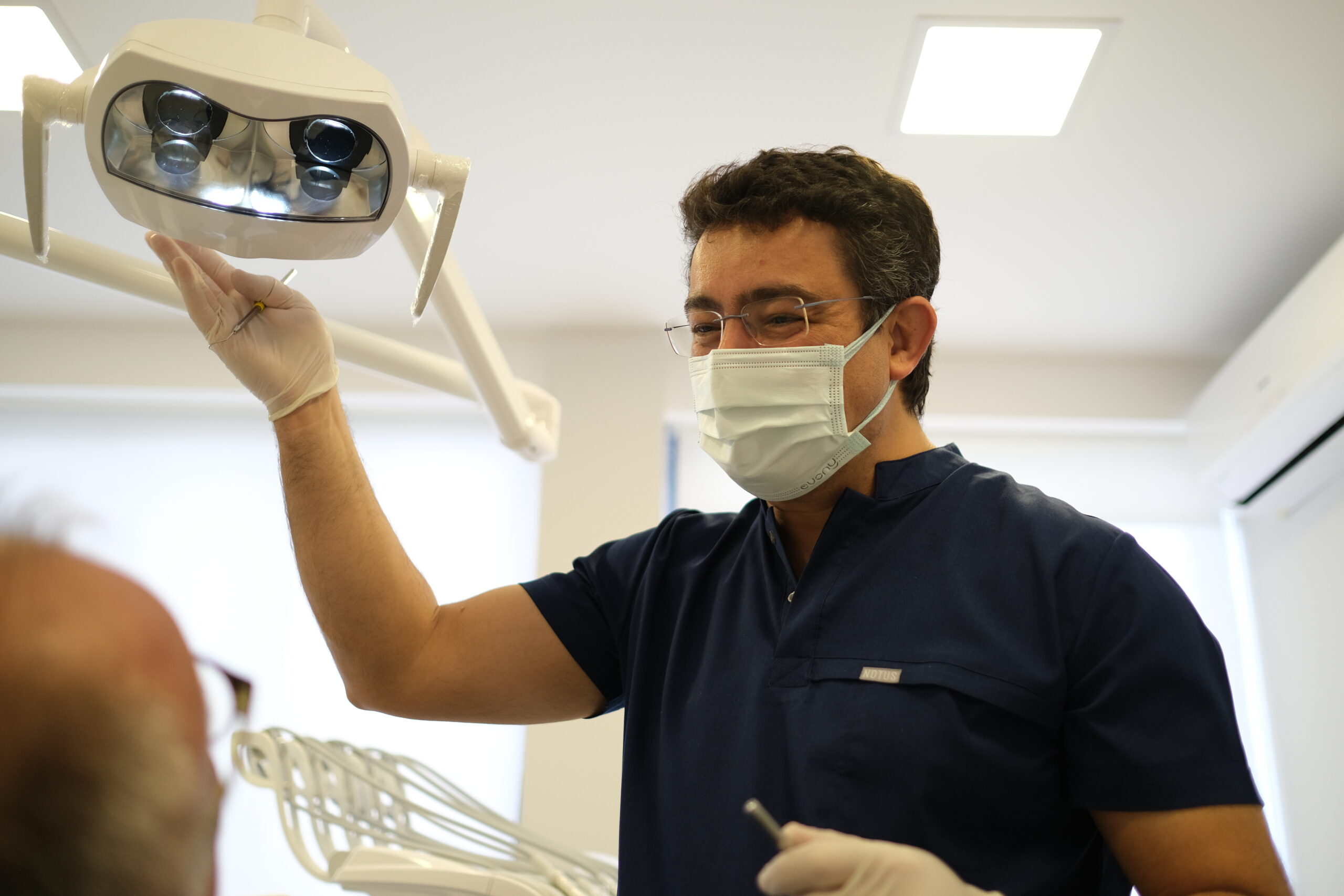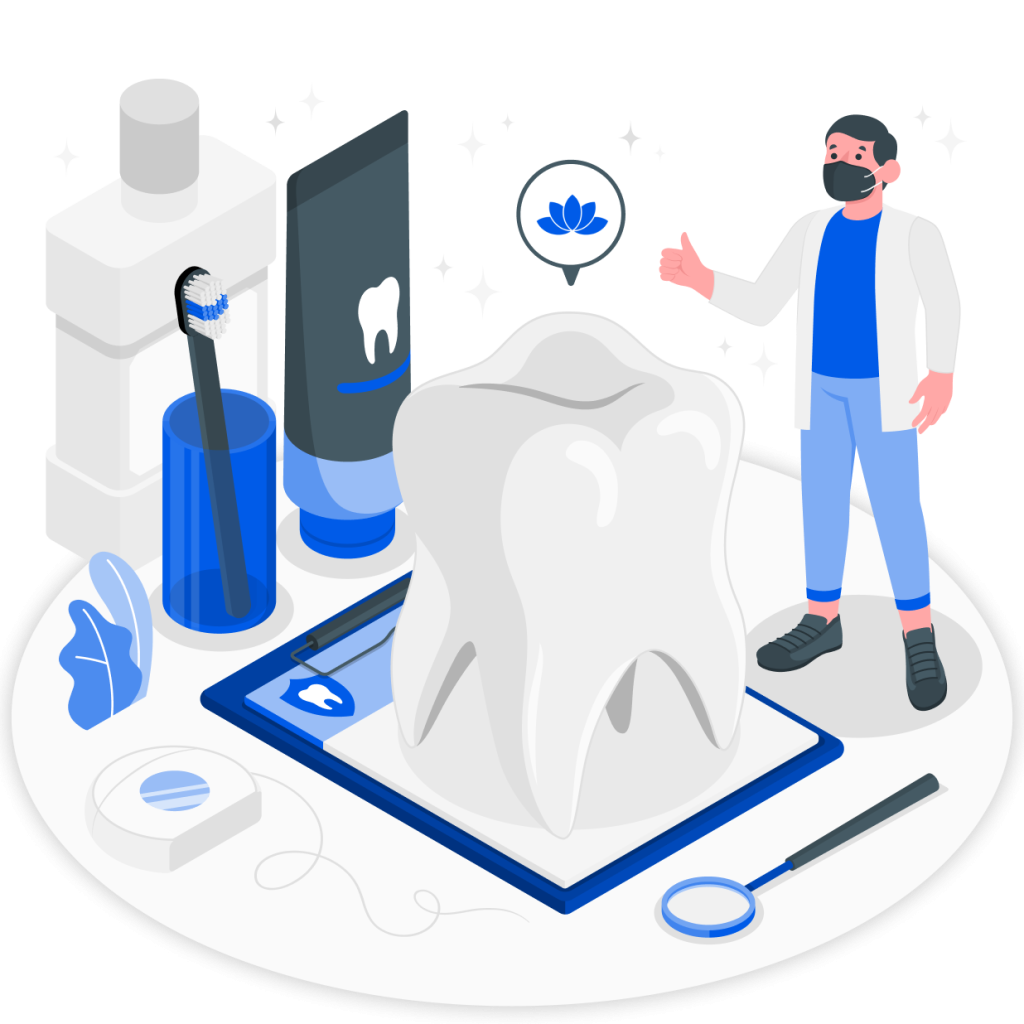Injuries in the maxillofacial area as a result of traumas such as falls, bumps and blows are not limited to soft tissues and may cause facial trauma fractures and cracks in the teeth, and surrounding hard tissues.
The first thing to note about injuries to the maxillofacial region is that trauma affecting these areas may also affect the skull base.
The first step to be taken, in case of a life-threatening head and neck injury as a result of a trauma, is to apply to the emergency departments of hospitals.
If there is no risk to life and there is a fracture in the maxillofacial region as a result of the medical examination after the head and neck x-rays taken in the emergency clinics, the second step to be taken is to consult to the nearest Oral, Dental and Maxillofacial surgeon.
This application can be made by referral by the emergency doctor or in accordance with the patient’s own wishes. It should be kept in mind that jaw injuries should be treated quickly and a maxillofacial surgeon should be consulted immediately.
At Lotus Dental, we have successfully treated many jaw fracture and facial trauma cases since 2010 thanks to the contribution of my team and the cooperation of my patients.
My primary advice in this regard would be to avoid activities with high risk of accident and take full protective measures as much as possible. I would like to share this article in order to prevent the mistakes frequently made by patients in cases of jaw fracture and facial trauma and to increase awareness of this issue.


Traumatic Tooth Fractures and Treatment
If you have a dislodged or tooth fracture:
- The broken tooth should ideally be preserved in saline, or in milk if that is not available. And you should come to the clinic quickly.
- If the tooth is not broken as a result of the fall, but slightly dislodged from where it is rooted, you should contact a dental clinic without trying to dislodge the tooth further.
- If the fall or the blow have completely dislodged the tooth from the root and it has fallen to the ground, you should contact the dental clinic as quickly as possible in saline without touching the root surface of the tooth. In such a case, if you cannot find the saline, you should rinse the fallen tooth with clear water and preserve it in milk or the patient’s own saliva and consult to the dental clinic.
Facial Trauma: Jaw Fractures and Treatment
It should be remembered that jaw injuries should be intervened by a maxillofacial surgeon as soon as possible. A dental clinic with a maxillofacial surgeon should be consulted without losing any time.
In order to prevent any sequelae in the jaw area, the broken jaw should be intervened within two days at the latest. In the case of a broken or dislocated tooth as a result of the trauma should be intervened as quickly as possible within 1-2 hours or even earlier if possible.
Since the jaw bones have a complex joint system and are exposed to the forces of many muscles in different directions, leaving them to heal on their own can be inconvenient and risky. Interventions are usually performed by ligating the jaws together and then fixing the fracture line with osteosynthesis plates.
If you have received a blow to your jaw that may cause a fracture and your emergency intervention at the hospital has been completed, here is what you should do respectively;
- You should consult the nearest maxillofacial surgeon.
- You should wait without opening and moving your jaw if possible.
- If there is a suspicion of a jaw fracture, an examination should be performed after taking X-RAY.
- After the injury and during treatment, you should be on a soft diet and avoid chewing.
- When treatment is started, the treatment plan of the maxillofacial surgeon should be followed. These recommendations should be strictly followed.




